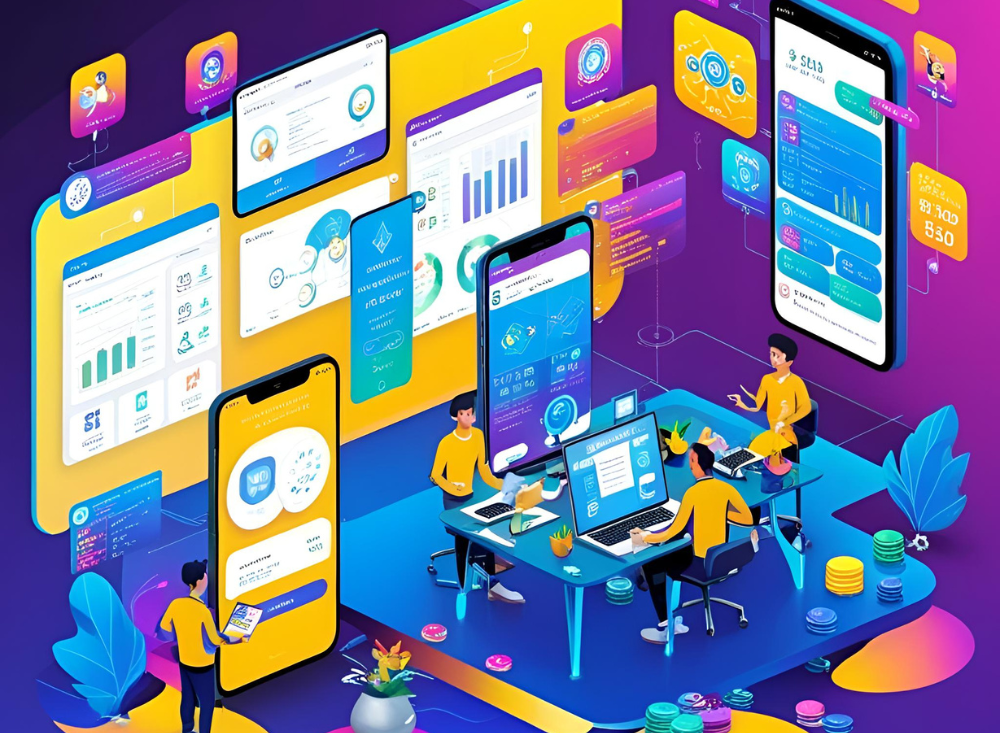
By 2025, mobile applications have become an inseparable part of everyday life. Whether it’s banking, shopping, healthcare, or enterprise operations — apps dominate every aspect of our digital interactions. But the success of these applications heavily relies on one crucial factor: quality assurance. As mobile apps grow in complexity, the way we test them must evolve accordingly.
Traditional manual testing methods and record-and-playback tools are no longer adequate for today’s fast-paced development cycles. This has led to the emergence of a smarter, faster, and more adaptive testing paradigm — one that is driven by artificial intelligence.
Beyond Automation: Rethinking Mobile Testing
Modern mobile testing faces several challenges:
- Compatibility across countless devices and screen sizes
- Continuous app updates and agile sprint cycles
- Complex UI/UX elements that change frequently
- High user expectations around speed, stability, and performance
To tackle all of these issues, teams need more than just automation — they need intelligent automation.
The Evolution of AI in Mobile Testing
Artificial Intelligence is transforming every industry, and software testing is no exception. Modern AI-based testing tools go beyond executing test scripts. They can automatically create test cases, self-heal when UI changes, and simulate real user behaviors with impressive accuracy.
One such platform leading this transformation in 2025 is GenQE.ai. This intelligent quality engineering solution simplifies and accelerates mobile app testing using AI and natural language capabilities.
Rather than treating testing as a tedious chore, platforms like GenQE.ai turn it into a collaborative, smart, and scalable process. With natural language input, cross-device compatibility, and self-healing features, the platform ensures tests stay valid even as the app evolves.
Key Capabilities Every QA Team Needs
1. Automatic Test Generation
Creating and maintaining test scripts has traditionally consumed significant time and effort. But today’s AI tools use natural language processing and machine learning to understand application behavior and generate relevant test cases automatically. A tester simply describes the expected behavior, and the tool handles the rest.
2. Self-Healing Automation
Changes in UI elements used to break test scripts frequently. AI-based tools now recognize element context and update scripts automatically when minor changes occur, significantly reducing test maintenance overhead — often by over 70%.
3. Device Compatibility Testing
Every device varies in screen size, OS version, and hardware specifications. AI tools can simulate or test on real devices through the cloud, ensuring complete compatibility across various mobile environments.
4. Natural Language Testing
Testing is no longer restricted to just technical team members. Now, product managers, designers, and analysts can contribute by using plain English commands like: “Login should fail with incorrect password.” The system then builds and executes the corresponding test case automatically.
5. Real-Time Reporting and Insights
What failed? Why? On which device? Under what conditions?
Modern AI platforms provide detailed failure insights — not just logs — helping developers and QA teams quickly identify root causes, such as slow network, UI lag, or memory leaks.
Use Cases Where Smart Testing Tools Shine
🛒 E-Commerce
Features like checkout, cart sync, and multi-language support require continuous testing. AI testing tools allow for simulation of real-world user flows and device conditions in real time.
🏦 Fintech and Banking
Testing for biometric logins, encryption, and secure transactions is mission-critical. AI platforms help automate compliance checks and security validation without compromising data integrity.
🎮 Gaming
Mobile games need performance testing — frame rates, load times, GPU use, and more. AI-based testing helps simulate performance-heavy conditions and optimize gameplay across devices.
🩺 Healthcare Apps
Sensitive features like telemedicine, patient data storage, and HIPAA compliance must be tested precisely. AI tools that understand workflow logic and regulatory standards are ideal for this domain.
The Future: Smarter Testing, Not Just Faster
Previously, test automation was all about speed. In 2025, the focus has shifted to intelligence. Tools like GenQE.ai not only run tests quickly but also:
- Learn from user behavior
- Predict app performance bottlenecks
- Adapt to real-time app changes
- Integrate seamlessly with CI/CD pipelines
Testing has evolved from being a reactive step to becoming a proactive, predictive quality layer in the software development lifecycle.
Conclusion
In 2025, mobile testing requires more than just automation. It demands an intelligent, adaptable, and low-maintenance ecosystem that delivers both speed and reliability. AI-powered platforms — such as GenQE.ai — exemplify this evolution, redefining what quality engineering means for modern app teams.
These platforms do more than catch bugs — they enhance the product lifecycle by integrating quality into every phase of development. Whether you’re a startup or a global enterprise, smart testing is no longer optional. It’s mission-critical.